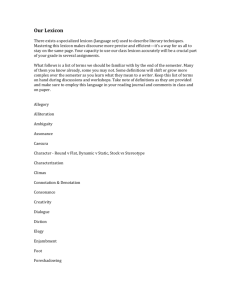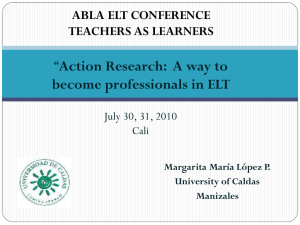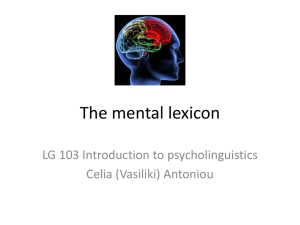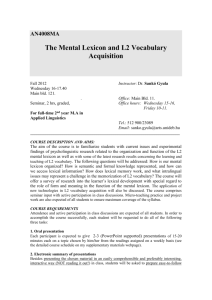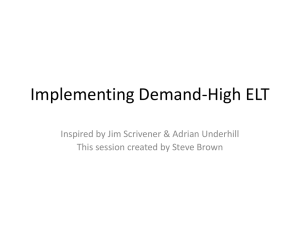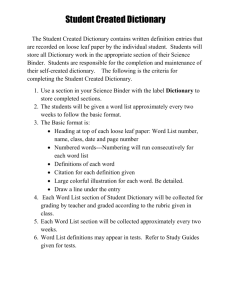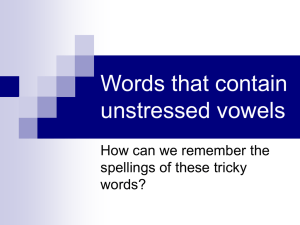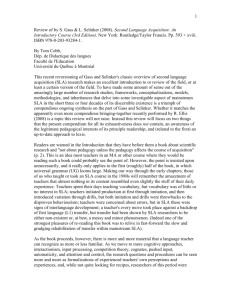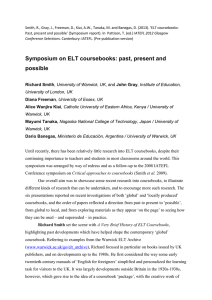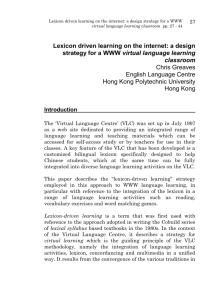Two Innovations in Pedagogical Dictionaries Geoff Toister GT
advertisement
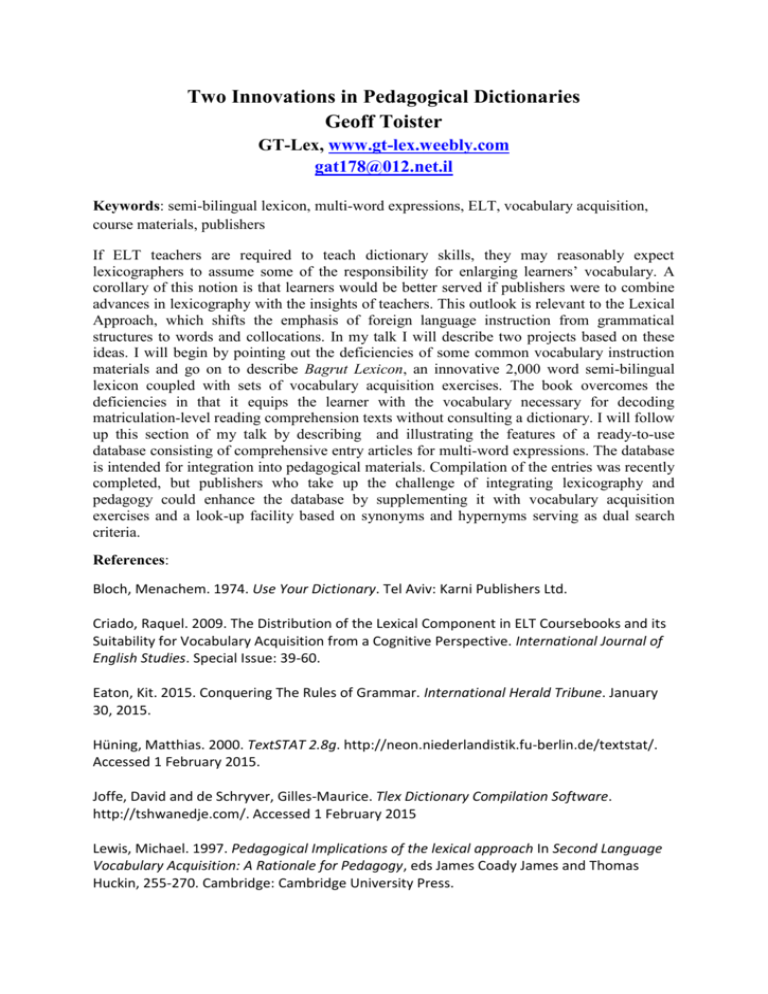
Two Innovations in Pedagogical Dictionaries Geoff Toister GT-Lex, www.gt-lex.weebly.com gat178@012.net.il Keywords: semi-bilingual lexicon, multi-word expressions, ELT, vocabulary acquisition, course materials, publishers If ELT teachers are required to teach dictionary skills, they may reasonably expect lexicographers to assume some of the responsibility for enlarging learners’ vocabulary. A corollary of this notion is that learners would be better served if publishers were to combine advances in lexicography with the insights of teachers. This outlook is relevant to the Lexical Approach, which shifts the emphasis of foreign language instruction from grammatical structures to words and collocations. In my talk I will describe two projects based on these ideas. I will begin by pointing out the deficiencies of some common vocabulary instruction materials and go on to describe Bagrut Lexicon, an innovative 2,000 word semi-bilingual lexicon coupled with sets of vocabulary acquisition exercises. The book overcomes the deficiencies in that it equips the learner with the vocabulary necessary for decoding matriculation-level reading comprehension texts without consulting a dictionary. I will follow up this section of my talk by describing and illustrating the features of a ready-to-use database consisting of comprehensive entry articles for multi-word expressions. The database is intended for integration into pedagogical materials. Compilation of the entries was recently completed, but publishers who take up the challenge of integrating lexicography and pedagogy could enhance the database by supplementing it with vocabulary acquisition exercises and a look-up facility based on synonyms and hypernyms serving as dual search criteria. References: Bloch, Menachem. 1974. Use Your Dictionary. Tel Aviv: Karni Publishers Ltd. Criado, Raquel. 2009. The Distribution of the Lexical Component in ELT Coursebooks and its Suitability for Vocabulary Acquisition from a Cognitive Perspective. International Journal of English Studies. Special Issue: 39-60. Eaton, Kit. 2015. Conquering The Rules of Grammar. International Herald Tribune. January 30, 2015. Hüning, Matthias. 2000. TextSTAT 2.8g. http://neon.niederlandistik.fu-berlin.de/textstat/. Accessed 1 February 2015. Joffe, David and de Schryver, Gilles-Maurice. Tlex Dictionary Compilation Software. http://tshwanedje.com/. Accessed 1 February 2015 Lewis, Michael. 1997. Pedagogical Implications of the lexical approach In Second Language Vocabulary Acquisition: A Rationale for Pedagogy, eds James Coady James and Thomas Huckin, 255-270. Cambridge: Cambridge University Press. Martinez, Ron and Schmitt, Norbert. 2012. A Phrasal Expressions List. Applied Linguistics: 33/3: 299-320 McAlpine, Janice and Myles, Johanne. 2001. Capturing phraseology in an online dictionary for advanced users of English as a second language: a response to user needs. System 31 (2003): 71-84 Phillips, Mark. 2006. Vocabulary Dictionary and Workbook. New York: A. J. Cornell Publications. Ranalli, James M. 2003. The Treatment of Key Vocabulary Learning Strategies in Current ELT Coursebooks: Repetition, Resource Use, Recording, M.A. Dissertation submitted to the School of Humanities of the University of Bermingham. Schmitt, Norbert. 2000. Key Concepts in ELT. ELT Journal. 54/4: 400 State of Israel. 1988. The Lexicon. In English Syllabus for Schools,72-129. Jerusalem: Ministry of Education and Culture Toister, Geoff. 2012. Bagrut Lexicon, An Interactive E-Module Lexicon for Vocabulary Building. Kfar Monash: Ofarim Publishers. Trappes-Lomax, Hugh. 1997. Oxford Learner's Wordfinder Dictionary. Oxford: Oxford University Press.

